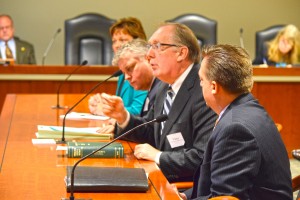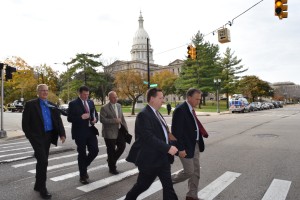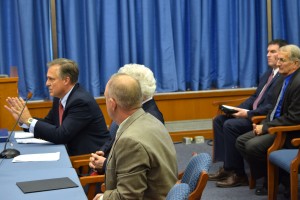Today, a package of bills (SB 579 and SB 619-624) to exempt separate library millages from tax Capture by tax increment financing (TIF) authorities received testimony and was voted out by the Senate Finance Committee.
The language in each bill in the package states that if the TIF authority does not have any outstanding debt or obligations, a library millage voted on prior to December 31, 2015 is exempt unless the library board decides to opt in to capture. If the millage is voted on after December 31, 2015, the millage is exempt from tax capture unless the library board approves it.
The League testified in opposition to the bill package because of the slippery slope this creates. This is a topic of the broader conversation of TIF reform and we feel it should be dealt with as a whole instead of breaking it off piece by piece.
The bills were voted out of committee with all yes votes except Sen. Knollenberg who passed.
Nikki Brown is a legislative associate for the League handling economic development, land use and municipal services issues. She can be reached at nbrown@mml.org or 517-908-0305.





